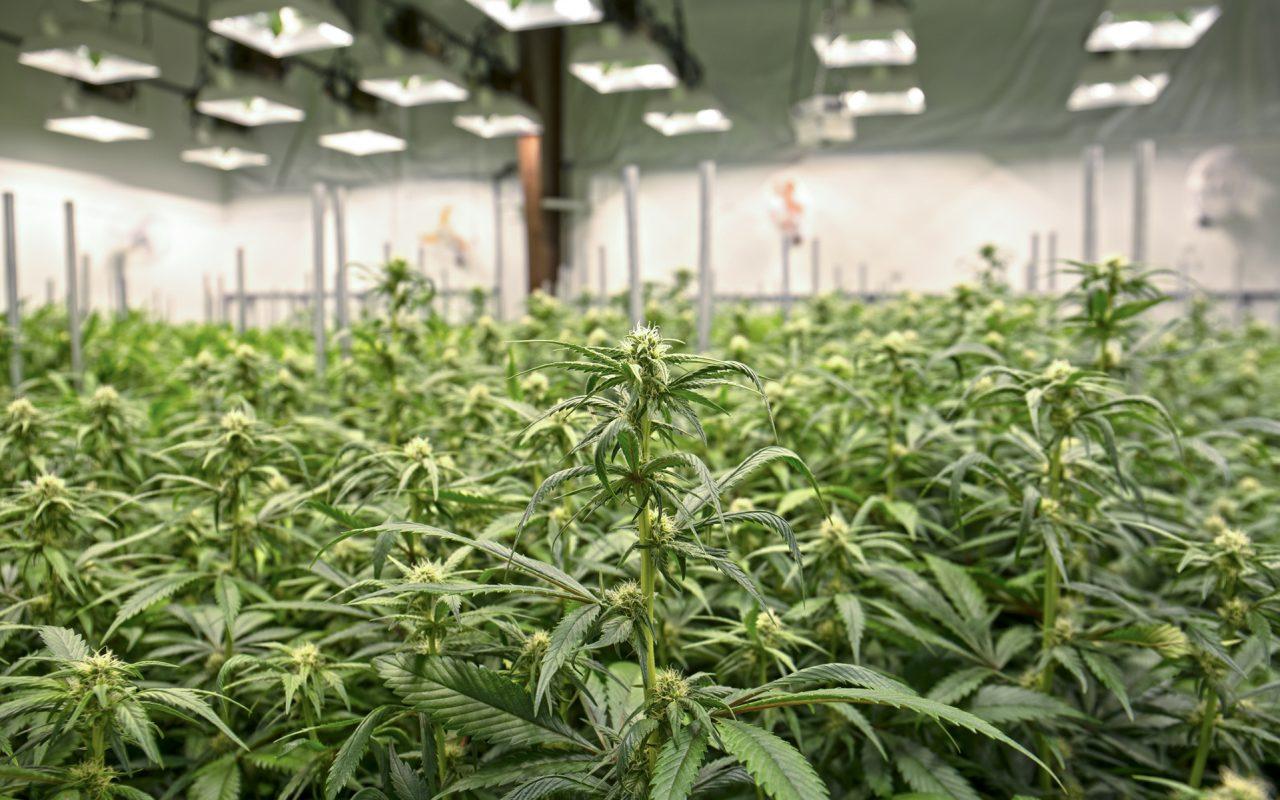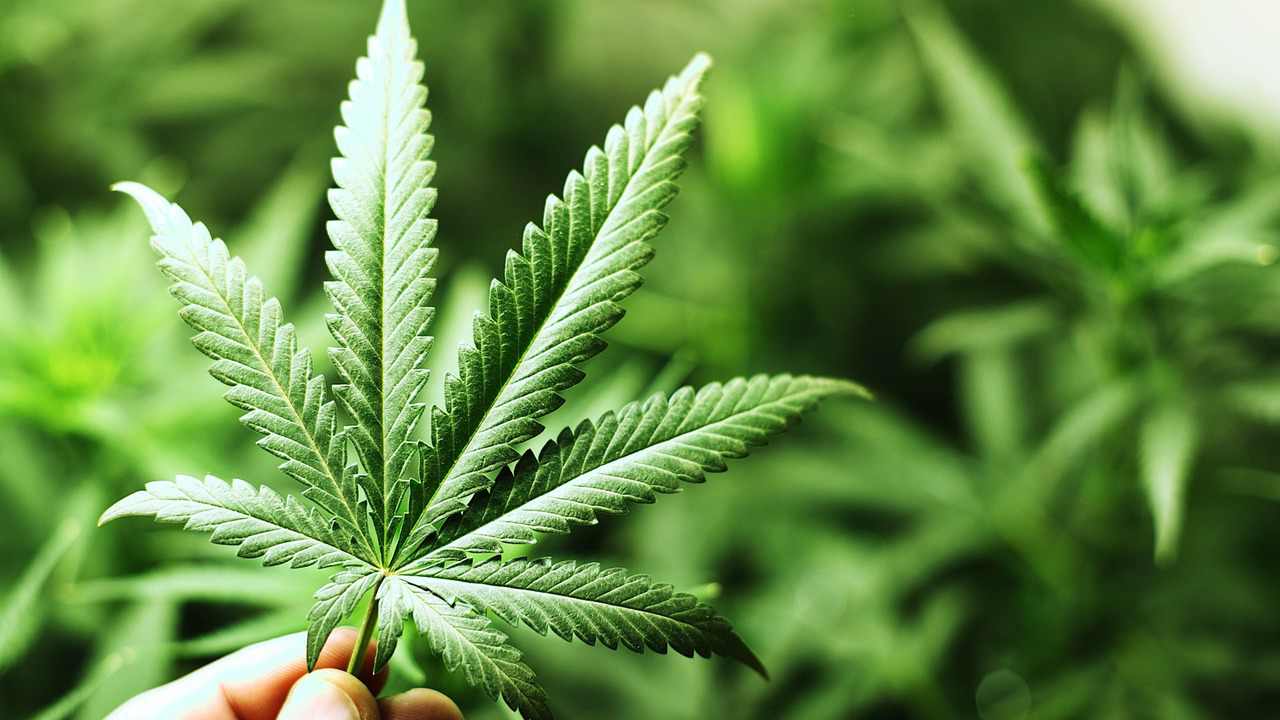(Natural Blaze by Wes Annac, Editor, Karma Yoga Daily) Pesticide contamination in cannabis is a big problem. Careless growing methods have been the norm for decades due to marijuana’s illegality, and sadly, this is just as much of a problem in legal states as it’s always been. High-profile cannabis users are speaking out against the widespread use of pesticides to grow the plant, and laboratory studies on samples from legal states have produced unsettling results.
This is an unfortunate and unacceptable symptom of marijuana’s decades-long criminalization. Had it been legal for the past century, this would have likely stopped being a problem a long time ago. Although its legalization in various U.S. states is a sign of much-needed change, there are growers who still aren’t subject to any federal regulation because the plant is still federally illegal. It’s like the wild west in terms of what chemicals can and can’t be used to grow weed commercially.
Related: How to Avoid GMOs in 2018 – And Everything Else You Should Know About Genetic Engineering
This article scratches the surface of a problem that’s worse than we all thought. With that said, here are five facts about pesticide contamination in cannabis.
- 69% of pesticide residues can remain in cannabis
WeGrow reports that a 2013 Journal of Toxicology study found that “up to 69.5% of pesticide residues can remain in smoked cannabis, which inhaled, goes directly to your bloodstream.” Pesticides can be detrimental, with hazardous “side effects” that include cancer, weakened muscles, and damage to the liver. (1)
Obviously, cannabis cultivation is not subject to any FDA regulations that could eliminate these hazards. (1)
- 84% of California medical marijuana samples were found to contain pesticides
Alicia Lozano at LA Weekly writes that a laboratory in Berkeley discovered that “84 percent of medical marijuana samples contained large amounts of pesticides”. The discovery concerned the researchers at the lab, known as Steep Hill, because they’d expected a much lower level. They think consumers in California should also be concerned. (2)
The results aren’t much better in other states with legal marijuana.
Steep Hill president and CEO Jmichaele Keller explains that this makes cannabis much less safe than we assume it to be. He points out the obvious: smoking or vaping cannabis tainted with pesticides could put the body at the mercy of hazardous chemicals. He encourages the cannabis community to do something about it now. (2)
- Pesticides in marijuana have been a problem for a long time
Bruce Barcott at Leafly writes that this has been a problem for “years”, with the Los Angeles city attorney’s office discovering seven years ago that samples from area dispensaries contained “exceedingly high levels of bifenthrin”. This is a pesticide that’s harmful to bees but relatively safe for humans. Although it’s not as much of a risk (unless you’re a bee), the L.A. city attorney found that a “cannabis flower” sample had 1,600 times the lawful amount of it. (3)
Related: Monsanto Lost! Ordered to Pay $289 million in California Roundup Cancer Trial
Chris Van Hook, founder of Clean Green (cited by Bruce at Leafly) explains that “pesticide regulators” have never been involved with marijuana because its production and sale have been illegal. Black market growers use the easiest and most successful methods no matter how harmful they are to humans or the environment. (3)
To Chris, the difference between organic and pesticide-tainted cannabis is akin to the difference between organically grown and mass-produced basil. The latter looks prettier and retains freshness, but at the cost of consumer health. He points out that ultimately, we don’t know what chemicals cannabis users are consuming. (3)
- Contamination is worse with concentrates
Bruce at Leafly writes that a study done by the Cannabis Safety Institute found 10 times the amount of pesticides in cannabis-derived concentrates compared to the herb itself. Among other causes, this is attributed to the concentration process bringing in pesticides along with the desired cannabinoids. The results were nonetheless “surprising”, because the process only provides 2-5 times more cannabinoids in comparison to 10 times the amount of pesticides. (3)
Bruce writes that there are several potential reasons concentrates contain so many of these harmful chemicals. Among them are:
- The methods used to extract cannabinoids might concentrate pesticides more effectively (3)
- The “extraction equipment” could get contaminated and cause cross-contamination (3)
- The trim used to make concentrates could contain more pesticides than the flower (3)
Bruce recommends this paper for anyone looking for more information.
- Reggae musician Ziggy Marley recently spoke out against pesticides in cannabis
On April 16, reggae musician Ziggy Marley (son of Bob Marley) wrote an article for Rolling Stone decrying the use of pesticides for marijuana and urging consumers to take action. (4)
The Marleys are no strangers to cannabis. It would require a separate article on this blog to cover all the cannabis and hemp-based products and businesses attributed to the family, from a legal pot farm in a former prison to a line of organic hemp foods and even a marijuana cookbook.
Related: In Shocking Development, Chemicals in Food and Packaging are Toxic to Children
In the article, Ziggy wrote that consumers must hold everyone in the industry to “high moral and business standards” to ensure the health of users everywhere. He also wrote that in the face of marijuana’s industrialization, we must “stay vigilant” regarding pesticide use. (4)
He pointed out that if we let the cannabis industry go the way of other industries that became more about profit than consumer “welfare”, then marijuana will become another “mass-produced product” that causes a variety of health problems. (4)
Concerned Consumers: Grow Your Own
The best solution for consumers in legal states is to grow their own cannabis. Ziggy Marley recommended it in the aforementioned article, and WeGrow recommends it as well:
“The appeal of home grown cannabis continues to increase as the transparency of the legislation behind the use of pesticides within commercial cultivation operations remains blurry and unclear. Growing your own cannabis indoors gives you ability to control all factors and produce clean, safe, and ultimately quality cannabis for your personal use.” (1)
Most consumers rely heavily on growers and dispensaries, and with legalization in its infancy, growers can get away with a lot more than if we’d reformed our drug laws decades ago. Until we can ensure that they meet the necessary standards, the best bet for consumers is to grow it themselves. This is the only way to ensure that what you’re consuming is safe.
You can spread the word by sharing this or any article, video, etc. raising awareness of this problem. The more people who become aware, the more who’ll fight for standards that should already be in place but have yet to materialize thanks to Uncle Sam. Change is happening, but we must be present every step of the way to ensure it’s a positive change.
Sources:
- “Impact of Pesticides on Cannabis”, WeGrow – https://wegrowapp.com/impact-pesticides-on-cannabis/
- Alicia Lozano, “Pesticides in Marijuana Pose a Growing Problem for Cannabis Consumers”, La Weekly, October 27, 2016 – https://www.laweekly.com/news/pesticides-in-marijuana-pose-a-growing-problem-for-cannabis-consumers-7526808
- Bruce Barcott, “Pesticides 101: Questions and Answers for Cannabis Patients and Consumers”, Leafly, March 21, 2016 – https://www.leafly.com/news/cannabis-101/pesticides-101-questions-and-answers-for-cannabis-patients-and-co
- Ziggy Marley, “We Need to Ban Pesticides in Pot”, Rolling Stone, April 16, 2018 – https://www.rollingstone.com/culture/culture-news/ziggy-marley-we-need-to-ban-pesticides-in-pot-628401/
About the author:
 I’m a twenty-something writer & blogger with an interest in spirituality, the environment, activism, music, and other awesome stuff. I run Karma Yoga Daily, a news blog dedicated to sharing daily wisdom.
I’m a twenty-something writer & blogger with an interest in spirituality, the environment, activism, music, and other awesome stuff. I run Karma Yoga Daily, a news blog dedicated to sharing daily wisdom.
This personal blog I run is pretty great, too.
Follow me on Facebook (Wes Annac, Karma Yoga Daily) and Twitter (Wes Annac,https://twitter.com/love_rebellion)
If you enjoyed this post and want to support my work, consider a donation by sending funds via PayPal to wesremal@yahoo.com.
Recent articles and videos:
- More Kindness, Less Hate
- A Step in the Right Direction: Texas Republicans Support Cannabis/Hemp Decriminalization
- I Know Nothing
No copyright. Share freely with attribution to Wes Annac and Karma Yoga Daily
Thanks for reading!




